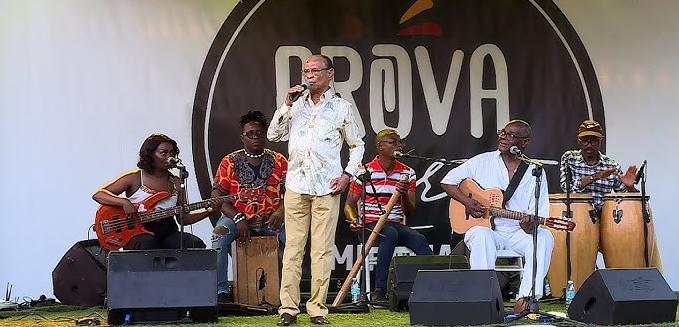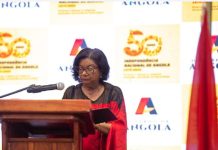Africa-Press – Angola. Musician Amadeu Amorim was honored Sunday in Luanda for his contribution to Angolan music and National Independence, as a member of the group Ngola Ritmos, in an initiative by Edições Novembro, in partnership with the cultural space Prova D’Art.
Speaking to the press, representing the event’s organization, Analtino Santos, said that the initiative is part of the tributes that have been taking place since last August, as part of the celebration of 50 years of Independence.
He stressed that this is the third tribute, after Massano Júnior and Teta Lando, whose program included the launch of Amadeu Amorim’s biographical book entitled “The Last Survivor”, authored by writer Pedro Rosa.
Analtino Santos stated that the program will be monthly, with musician Bangão being the next to be honored, in a series of tributes that will encompass cultural figures in general.
In turn, the honoree expressed gratitude for the tribute, a fact that reflects his achievements in music over the past 50 years and in the country’s liberation process.
He recalled that the elders of the past did their part and fought for independence and peace, a factor that obliges the current youth to contribute over the next 50 years to a better, more united, and more prosperous Angola.
During the tribute, artists Lolito, João Domingos, Chikela, Messene, and Chico Dya Mundele performed the songs “Carlitos,” “Colonial,” “mbiri mbiri,” “Muxima mahenzo,” “Kanguirima,” “Palame,” “Cubanta dya Rosita,” and “Cidralha” on stage.
Amadeu Timóteo Malheiros de Amorim, a native of Luanda, was born on August 3, 1937, in the Angolan capital. Son of Amadeu Amorim and Maria da Conceição Malheiros dos Santos, he is a politician, nationalist, and musician, being the only survivor of the former musical group N’gola Ritmos.
Between art and politics, Amadeu held various positions in the Angolan government and is recognized for his contribution to the struggles for Angolan independence.
An electrician for the Luanda City Council, he was arrested in 1959 during the wave of arrests by the PIDE (Portuguese secret police), which in Angola gave rise to three judicial processes commonly known as the “Trial of the 50”.
Accused of belonging to the Movement for the Independence of Angola (MIA), whose members later joined the MPLA, he was tried in the Territorial Military Court of Angola (Case 34/60), and sentenced in 1961 to 18 months in prison (already served at the time of sentencing) and the loss of all political rights for 5 years.
In addition to imprisonment and restrictions, security measures were also applied, including internment for 6 months to 3 years, renewable, which led to his being sent to Tarrafal prison in Cape Verde, where he remained for almost three years.
Alongside Liceu Vieira Dias, Domingos Van-Dúnem, Mário da Silva Araújo, Manuel dos Passos, Nino Ndongo, Belita Palma, Lourdes Van Dunem and Zé Maria, Amadeu Amorim was part of the group N’Gola Ritmos, one of the most important and influential musical groups in Angola in the 20th century.
For More News And Analysis About Angola Follow Africa-Press






